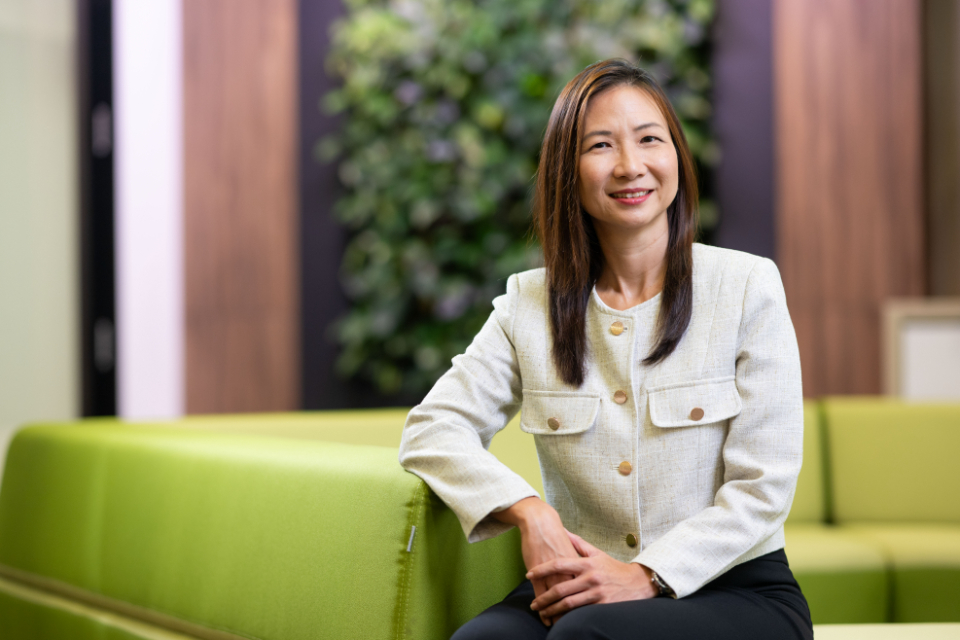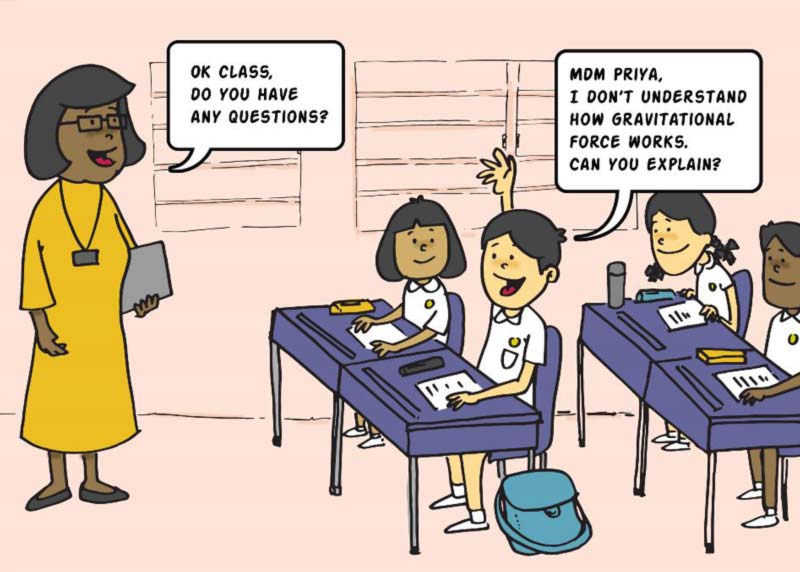Amidst all the ongoing chatter about whether the growing power of artificial intelligence (AI) should be feared, AI professional Tang Yu is convinced that the future is bright for his four children.
As head of customer service for a robotics firm that helps businesses implement automation solutions, Mr Tang sells the advantages of AI for a living.
He also understands its limits.
“People fear robots and AI because they don’t understand – or they overestimate – the intelligence of the technology. But it has its limitations too,” he explains. “We as humans will always have the upperhand.”
His children are between six months and 13 years old, and he has been familiarising the older ones with its capabilities. He believes that early exposure can help them seize that upperhand and navigate the future more confidently.
How AI is changing the workplace
Mr Tang, 44, was steeped in computer engineering when he turned his interests towards the burgeoning areas of robots and AI. He also honed his skills in Australia for five years in software that helps businesses to automate their processes.
Organisations are more efficient when it takes less time to execute repetitive and mundane tasks on the computer and there is less human error, he says. Paired with AI, it becomes more powerful by allowing the user to interact intelligently with it, and by “analysing” data to make it more meaningful to the user.
“Employees can then focus on higher-order tasks, which will be more sophisticated as work evolves in the future,” says Mr Tang.
AI is also capable of learning. “We call it machine learning and deep learning. But it relies on vast quantities of data being fed to it to learn, and even then, we humans are in control of the data it has access to.”
In other words, he has to prepare his children for a world where machines will get smarter, menial work would be scarce, and higher-order thinking is in demand. What steps has he been taking?
Making AI a natural part of his children’s lives
Mr Tang believes that immersing his children in AI from a young age can help them navigate the future more confidently.
He started a few years ago by introducing them to Google Assistant, a virtual assistant that responds to voice, similar to how Apple’s Siri works.
His children were allowed to chat with Google under the supervision of their mother, asking questions like a meaning to a word, the title of a song, or about a new place they had heard of.
“Unlike the Google search engine which may carry unsuitable content to children, Google Assistant can only respond to clear and simple questions, so we felt that it was a safer way for them to experience AI with our close supervision.” The experience has been fun and immediate, and exposes the children to the wonders of AI.
At school, his children’s teachers have also discussed the use of AI tools with them, including how they need to be able to verify the facts that come from these bots.
Shares Mr Tang, “My son’s school has been conversing with us parents about the use of easily accessible AI tools, like ChatGPT, something which I’m very grateful for. It’s not going away for sure, so I appreciate the open attitude and forwardness that they have approached this topic with.”
A question of ethics
As they engage increasingly with it, Mr Tang and his wife find ways to cultivate values in their children, so they will use their knowledge for good.
“The ethics we hold close to our heart are what sets us apart as humans,” Mr Tang explains. “As a dad, I must set my children on the right path with strong values, so that no matter what new technology lies in the future, my children will know how to use them responsibly.”
“For my wife and I, values like respect for our elders and empathy are essential. Children who value these principles, along with other virtues like honesty, responsibility, and resilience, are more likely to consider the impact of their actions on others when using technology. For example, if the children are brought up to be honest, they will know that it is wrong to plagiarise content from the Internet.”
“Much like how we can emphasise how they should not take the short-cut and peek at the answers of an assessment book, we can and should also educate our children not to rely on AI-generated answers as the easy way out.”
He believes that their everyday behaviour as parents, including ground rules they set on their use of devices, will have an impact on all their decisions in future, not just in relation to tech use and abuse.
“When my children see us showing love to their younger siblings and caring for them, for example, they will understand that these values underscore how we live our lives, and they will hopefully make decisions in future that will benefit those around them too.”
‘Humanity will always prevail’
One compelling reason why Mr Tang thinks AI will not overtake humankind, no matter how intelligent it becomes, is because of humankind’s innate nature to always be one step ahead.
“We humans have a strong and primal drive to excel in our societies; we want to be better than others and we push ourselves to compete to be the best,” says Mr Tang. “And, in this quest, we will inevitably turn to AI and technology to get ahead of everyone else.”
What about the argument that ready access to intelligent chatbots will make us lazy, even defenceless against smarter machines?
It comes back down to our survival instincts, he says; we will find a way to stay alive and not let civilisation fall to machines. There is also our fundamental drive to compete to get ahead.
He reasons, “If everyone relies on the answers provided by chatbots, you won’t stand out, right? Because of this innate desire to want to be better than everyone else, you’ll be pushed to come up with something different. And to do this, you’ll need to think critically or be creative.”
“This assures me that there is really no need to worry that AI will dumb us down or take away our edge as humans.”
From this standpoint, Mr Tang wants his children to know enough not to be manipulated by it.
“Ultimately, I believe my children and their peers will be smarter than me, helped along by AI tools and tech. It’s always been like this — each generation becomes smarter and faster than the preceding one.”



_small.jpg)

.jpg)
